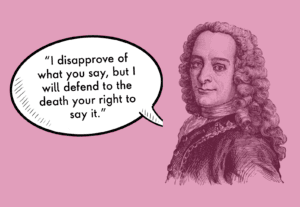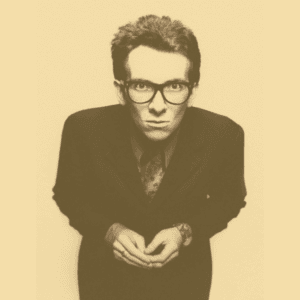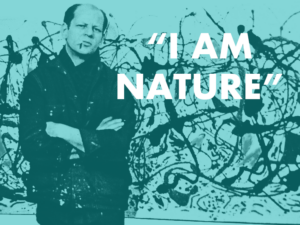Estimated reading time: 4 minutes
By Dr Jim Walsh, CEO of Conway Hall
Why should you read this? I am an aging member of the privileged middle classes in the UK. I am university educated and have a senior job in a charity. I am white, straight, and don’t have any disabilities. On paper, I am probably not going to have anything relevant to say to you. Perhaps though, you might allow me a few words?
The key message I want to discuss is about ethics. Not any specific ethical issue, but rather the importance of ethics in general.

Voltaire is rumoured to have said: “I disapprove of what you say, but I will defend to the death your right to say it.” This quote is used as an illustration for the importance of free speech. In similar fashion, my stance on ethics is equally as strong: “I might not agree with your particular stance on an ethical issue, but I will defend to the death that it should be debated.”
The impetus for both lines of argument is that discussing and listening to diverse opinions is healthy, for a society that wants to progress and not stagnate.
When we don’t allow discussion and debate, we run the risk, at best, of cleaving ourselves off into silo mentalities or, at worst, totalitarian thinking/action. The risks are well known and argued rampantly every day and everywhere we might care to look – from social media to main-stream media, from neighbours and friends to family members and colleagues. We don’t seem to be able to read or move without being exposed to someone vehemently shouting that someone else is wrong, wrong, wrong.

Without wishing to offer up a simplistic platitude or “I’m open to everything” line of thought, I believe in the phrase, ‘what’s so funny about peace, love and understanding?’ Thank you, Elvis C. It seems to me that we have collectively lost our way in the plethora of you-are-different-to-me thinking and we need to find our way back.
The route I propose is ethics. However, instead of seeing ethics as a mechanism of divisive positioning and partisanship, I believe we need to broaden our understanding of ethics. We need to develop a core sense of values behind a more humane class of ethics.
Let me share some indicative values. These come from Conway Hall Ethical Society, where I am proud to work:
- Historic – we embrace our history and share our heritage, in order to build a platform for future progress.
- Diverse – we celebrate the benefits of many viewpoints and those working together for common goals and minority rights.
- Creative – we believe in the power of creativity and culture to stretch our minds.
- Kind – we seek to avoid causing harm, preferring options which benefit people and help them to live freely.
- Human – we believe in the power of people solving problems together to build the world we want to live in.
These values are for an institution but, for me, they are also work for individuals. As an example, the ‘Creative’ value speaks to me when I think of how we can begin to reconcile differences.
The starting point for any form of reconciliation is listening, of course, but then a vital period of creativity must ensue. There has to be a moment where one side or the other starts to think beyond their own position and how to bridge across to the other.
Hegel famously saw historical progress as the movement from thesis and antithesis to synthesis. Easy right? We just need to find the synthesis to every disagreement. I wish it was that simple. The trick, as I have been leading towards is that any such reconciliation or synthesis needs someone to stretch their minds and be creative. It also needs the other to be open enough to listen to their thoughts.
When Jackson Pollock found himself challenged by his friend Hans Hofmann for not painting from nature his creative resolution was to declare, “I am nature.” Pollock obviously took Hofmann’s views seriously and found himself needing to engage with such potential criticism of his abstract work.
The creative shift he made, as a consequence, deepened both his and Hofmann’s understanding of their respective work and most certainly helped to give Pollock the confidence he needed to break free from the traditional art practices of the 1940s.
So, the ‘Creative’ value highlights an approach, a way of thinking and engaging. This approach, I contest, is ethics. Logically this follows because to not treat someone’s opposing view seriously diminishes either the argument or the person, which is not ethical and borders on name-calling or is potentially dehumanising.
Logic, however, cannot be the backdrop and upholder of ethics – otherwise I would be arguing to make logic matter. Instead, I want to campaign for ethics to be heard and giventhe power I have just gifted to logic – as the powerhouse for thought and what needs to be considered in discussions.
Logic, just as the Law, and economic reasoning absolutely must do their work in helping our society to progress and develop, but without due consideration given to the ethical plane of thinking we become cold, hollow automata. This simply won’t do because we are rich in our diversity, tremendous in our creativity, unique in our kindness,and human in all that we strive for.
We are humans. We are far more than logic, laws and economic units… we just need to try and understand each other better… we just need to be a bit more ethical.
